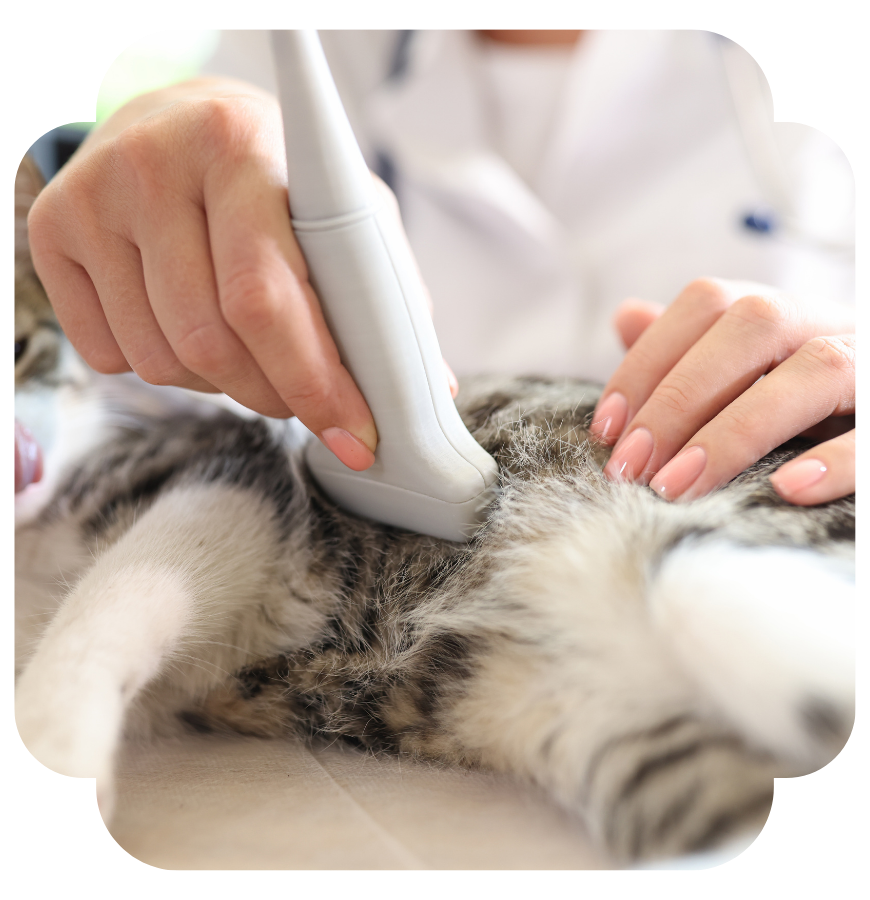Pet Ultrasound
At Compassionate Care Animal Hospital in Pickerington, OH, we offer advanced pet ultrasound services for accurate diagnosis and effective treatment plans.

Benefits of Pet Ultrasound
One of the primary benefits of pet ultrasound is its non-invasive nature. Unlike other diagnostic methods, ultrasounds do not require incisions or anesthesia, making the process much less stressful for your pet. This procedure is typically quick and painless, allowing your pet to return to their normal activities shortly afterward.
Another significant advantage is the detailed imagery that ultrasounds provide. These images can help our veterinarians identify issues such as tumors, cysts, and blockages that might not be visible through X-rays or other diagnostic tools. This level of detail is essential for developing effective treatment plans tailored to your pet’s specific needs.
Our Ultrasound Process
When you bring your pet to Compassionate Care Animal Hospital in Pickerington, OH, for an ultrasound, you can expect a smooth and professional experience. The procedure typically begins with a thorough physical examination and discussion of your pet’s history. This ensures that the ultrasound is targeted to the appropriate areas and that any concerns you have are addressed.
During the ultrasound, your pet will be comfortably positioned on an examination table. A small amount of fur may be shaved from the area to be examined to ensure good contact with the ultrasound probe. Our skilled veterinarians will then apply a special gel to the area, which helps the probe transmit sound waves into the body.
As the probe moves over your pet, real-time images will appear on a monitor. Our veterinarians will carefully examine these images, looking for any abnormalities or areas of concern. Once the procedure is complete, we will discuss the findings with you and explain any recommended next steps.
When is Pet Ultrasound Recommended?
There are several situations where our veterinarians might recommend a pet ultrasound. If your pet is experiencing unexplained symptoms such as weight loss, vomiting, or changes in urination, an ultrasound can help determine the underlying cause. It is also commonly used to monitor the health of pregnant animals, ensuring the well-being of both the mother and her offspring.
In addition, pet ultrasounds are valuable for ongoing management of chronic conditions. For example, pets with heart disease, liver disease, or certain types of cancer can benefit from regular ultrasounds to monitor their condition and adjust treatments as necessary.
